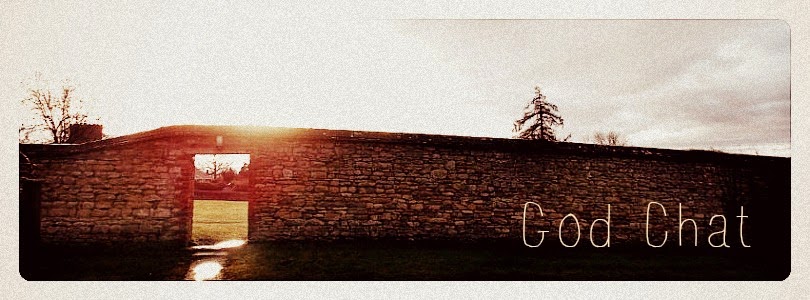My first degree, before studying Theology, was in Biology. A large part of my work in that course was practical field work and we often found ourselves in muddy English fields assessing the plant life and collecting soil samples. We would then take it back to the lab and analyse it. Did it have enough nutrients? Was it acidic? Were there any toxins lurking about?
Sometimes I think we can approach the parable of the sower in much the same way. Rather than hearing the 'Parable of the Sower' we hear the 'Parable of the Good and Bad soils.' We quickly get to work on analysing ourselves, doing a soil sample on our own lives. Are we enough for God's word to take hold? Are we choking the good things God is doing in our lives? Of course a clear headed appraisal of ourselves can be a good thing from time to time but when we immediately jump to this interpretation we often miss a really important part of this parable. The parable is about the Sower.
And what kind of Sower is he? Well, he's not the kind of sower who does a thorough soil analysis before scattering the seed. No, instead he spreads it liberally throwing it over any and every ground. The seed is not scarce. The ground is not assessed for its worthiness. The seed is sent out everywhere.
In the interpretation of this parable Jesus associates the seed with the Word of God. Sometimes the 'Word of God' has been interpreted to be the Bible but the Bible itself points to something more than this. The Word of God is depicted in the Old and New Testaments as a powerful force in the world. The Word is associated with the creation of the world, as Genesis reads 'Then God said, Let there be light, and there was light'. This link between the Word and creation is used by John in the opening chapter of his gospel. Echoing the Genesis story he begins his gospel with the words 'In the beginning' and writes that the Word is none other than Jesus, as John writes, 'the Word was with God and the Word was God'.
The Word is also described as influencing historical events and changing individual lives. The prophets speak into the circumstances of their time with the phrase 'Hear, the Word of the Lord' seen at the start of many of the prophetic books. For the prophets the 'Word of God' has something to say to all human life. To Kings and exiles. About wars and about reconciliation. Isaiah describes the Word as not only powerful but effective, he writes,
'For as the rain and the snow come down from heaven,
and do not return there until they have watered the earth,
making it bring forth and sprout,
giving seed to the sower and bread to the eater,
so shall my word be, that goes out from my mouth;
it shall not return to me empty,
but it shall accomplish that which I purpose,
and succeed in the thing for which I sent it'
I recently planted some lettuces in my garden. They grew up well and I was so pleased with them. Then one night what must have been one very hungry slug (or perhaps he brought friends!), came and ate up all my lettuces in one night. I was very frustrated. I didn't, however, go back to my husband and say, 'Oh well, that's it then. No salads this summer!' No, I sowed more seed until I got a harvest.
Likewise the parable of the Sower can be read negatively as the final verdict. Some people are rocky ground, others are all choked up by the cares of the world. In the worst case this can be used to cast judgement not only on ourselves but on others. Suddenly we move from our own soil testing to testing others and finding their ground to be somewhat lacking too. The parable is quickly turned from an observation of the ways of human beings into a lifelong sentence on individuals.
And we see that when the seed finally takes root that the harvest from this one small seed is abundant, thirty, sixty or a hundred times what was first planted. We see this at work all around us. In the natural world there is not one type of flower by over 250,000 different kinds. God the sower sows in abundance and nature testifies to that fact. So when reflecting on the parable of the sower lets remember that the parable is primarily about the Sower who is generous, who sows again and again and on each and every type of ground without discrimination. We can trust this sower and that this seed, his word, 'will succeed in that for which he sent it' and that we, too, can bear much fruit.
From a sermon given to St George's Church in Barcelona on 13th July 2014.

No comments:
Post a Comment